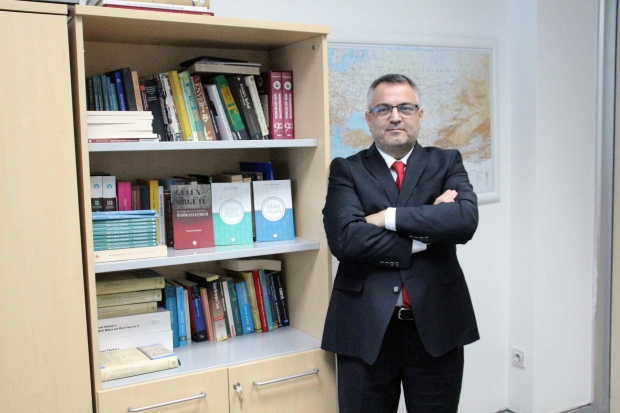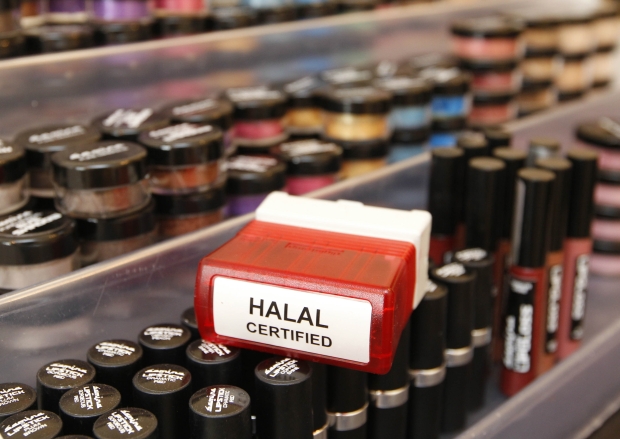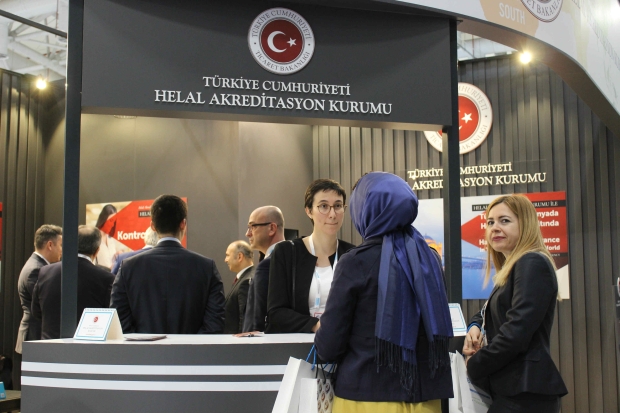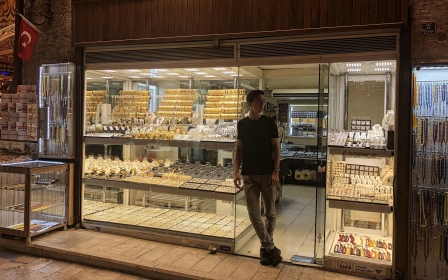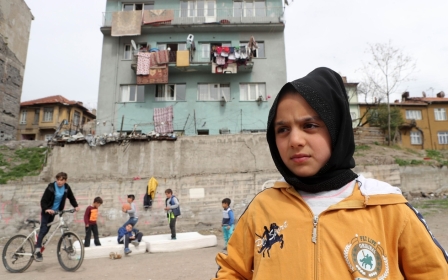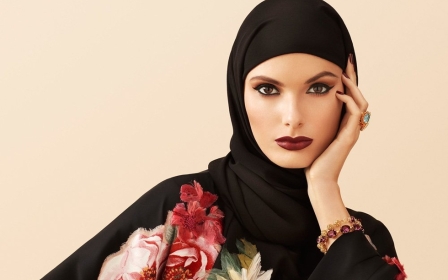Hunger games: Turkey eyes leading Middle East role through halal industry
ISTANBUL – In an exhibition centre near the mouth of the Bosphorus, a collection of culinary experts, politicians, trade officials and the singer once known as Cat Stevens provide evidence of Turkey's push to gain primacy in the Middle East.
Not through politics or the military, however. But through halal food.
Turkey is hosting the World Halal Expo 2018, an event drawing hundreds of people from across the world, all keen to get a bigger slice of a mutli-trillion dollar market.
And while Turkey's government may see this as a money-spinning exercise that can help prop up its stuttering economy, the fair is also part of a broader plan to bring international halal food standards under one, Turkish, roof.
Through this, experts say, Turkey is hoping to help secure itself as the leading country in the region and the Islamic world.
The halal sector is expanding very rapidly and has a huge potential
- Hilmi Demir, Hittite University
Competition in the market is stiff, however, with Malaysia, the United Arab Emirates and Saudi Arabia all well ahead.
Turkey has much catching up to do, says Professor Hilmi Demir of Hittite University's Theology Faculty.
"Turkey, due to the secularist mind set, was indifferent to the global halal market for a long time. However, the halal sector is expanding very rapidly and has a huge potential," Demir tells Middle East Eye.
"Shallow political discussions made Turkey lose time on the issue, while even non-Muslim countries were investing in this trillion-dollar business."
It is a market that does not just include food, but many other sectors and industries, such as banking, tourism, cosmetics and energy.
Vast opportunities
Currently, Turkey lies 15th on Thomson Reuters' Global Islamic Economy Indicator, a list that "gives a comprehensive picture of which countries are best positioned to address the multi-trillion-dollar global opportunity".
The first four are Malaysia, Bahrain, UAE and Saudi Arabia.
Last year, Turkey didn't even make the top 15. But as the State of the Global Islamic Economy Report 2018/2019 (also by Thomson Reuters) shows, Ankara holds huge ambitions to climb up the rankings.
The 2018-2109 report underlines that the largest investment in the halal food market has been a joint Turkish-Qatari investment in Turkey worth $470m. Meanwhile, the other top 11 investments in the same field totalled $563m.
The investment opportunities in the halal industry are vast.
According to the report, global Muslim spending across lifestyle sectors was estimated to be $2.1 trillion in 2017, while the Islamic finance sector had $2.4 trillion in total assets.
Food and beverage led the Muslim spend category at $1.3 trillion, well in excess of the next-placed sector, clothing and apparel, at $270bn.
Muslim spend on food and beverages is growing at 6.1 per cent and was forecast to reach $1.9 trillion by 2023, according to the report.
Global ambition
Since Thursday, more than 500 buyers, 200 exhibitors, experts, academics and officials from Morocco to Indonesia have been rubbing shoulders at Istanbul's Yenikapi fair complex.
The four-day expo, held by the Organisation of Islamic Cooperation under the auspices of Turkish President Recep Tayyip Erdogan, is a chance for Turkey to demonstrate its appetite for the halal market.
In the world of halal, Turkish ambition is global.
At the expo, Turkey has made pains to promote its new initiative: Halal Accreditation Agency (HAK), an accreditation body it intends to operate worldwide.
HAK does not issue halal certificates itself but authorizes and supervises institutions that grant these documents.
According to 2018/19 report, there are more than 300 recognized halal certifiers, but no standardization for the certification.
The market for issuing halal certification alone is worth $6 billion annually, and as Turkey, we are after our share
- HAK Secretary-General Hasan Sagkol
Here Turkey sees a gap in the market.
In the United States, the Association of Kashrut Organisations has aligned 300 kosher certifiers.
With the HAK, Ankara believes it can do that for halal on a worldwide scale.
"The market for issuing halal certification alone is worth $6 billion annually, and as Turkey, we are after our share," HAK Secretary-General Hasan Sagkol told MEE.
Turkish Trade Minister Ruhsar Pekcan hopes HAK would bring foreign currency into the country in return for accreditation, which would help strengthen the Turkish lira.
"HAK will be the centre and leader in accreditation services in the $4 trillion halal market," the minister said, according to Anadolu Agency.
Win-win?
Oversight by HAK could be a win-win situation for Turkey and the industry.
Limited oversight of halal certifiers by impartial accreditation bodies is one of the main obstacles for the further enlargement of the halal market, the Thomson Reuters report suggested.
The lack of international alignment was also reported to increase costs for the manufacturers, who have to pay for multiple certifications.
As the largest production centre of halal products among Islamic countries, Turkey believes it should hold a preeminent position.
"For this reason, we have to take maximum advantage of the global halal product market," then-trade minister Namık Zeybekci said last year.
"We aim for Turkey to determine the trends and consumption habits of Islamic countries in the coming period by examining the cultural traditions of our geographic area."
IHAF applies its own set of rules while accrediting halal certifiers and assessing their operations. Meanwhile in Turkey, HAK enforces regulations set by the Standards and Metrology Institute for Islamic Countries (SMIIC), an Organization of Islamic Cooperation body.
One of the rules the SMIIC sets for halal food is that the certifiers must be Muslim. HAK's Sagkol told the MEE that this rule is fundamental, and that it is also the main point of conflict between HAK and other similar bodies.
"The others ... cooperate with non-Muslim firms and institutions for certification. However, we believe that halal market certificate income should be shared among Muslims," he said.
"Non-Muslims produce 80 percent of the products carrying a 'halal' stamp. However, we think that 100 percent of halal certifiers should be Muslim, and this is one of the rules set by the SMIIC."
In the lead-up to HAK being founded, Zeybekci warned that Turkey's rivals were teaming up with non-Islamic countries to set the rules for halal.
"Unfortunately, non-Muslim certification institutions are deciding which products and services are halal," he said.
"Some countries like Britain, in cooperation with some Muslim countries like the UAE, are becoming the rule setters."
The example he gave was the UAE's IHAF.
Challenges at home
Other organisations exist that aim to harmonise certification bodies in accordance with the SMIIC rules, but Sagkol claims that the real advantage HAK has over its competitors is Turkey's infrastructure for standardization, developed due to its customs union with the European Union.
"Since Turkey has a customs union with the EU, its technical abilities, training facilities and know-how on standardization is far greater than any other [Muslim] country."
However, HAK is not only competing in the international market; it also faces challenges closer to home.
In parliament on 9 November, Mehmet Bekaroglu, an MP from the opposition Republican People's Party (CHP), said such an attempt to profit from Islam was unethical.
"Religion has been used as a tool of politics, and now will be used as a tool for trade," he said.
"You are trying to trick Muslims into joining the capitalist system, inviting them to excess, which is not Islamic."
Middle East Eye propose une couverture et une analyse indépendantes et incomparables du Moyen-Orient, de l’Afrique du Nord et d’autres régions du monde. Pour en savoir plus sur la reprise de ce contenu et les frais qui s’appliquent, veuillez remplir ce formulaire [en anglais]. Pour en savoir plus sur MEE, cliquez ici [en anglais].


